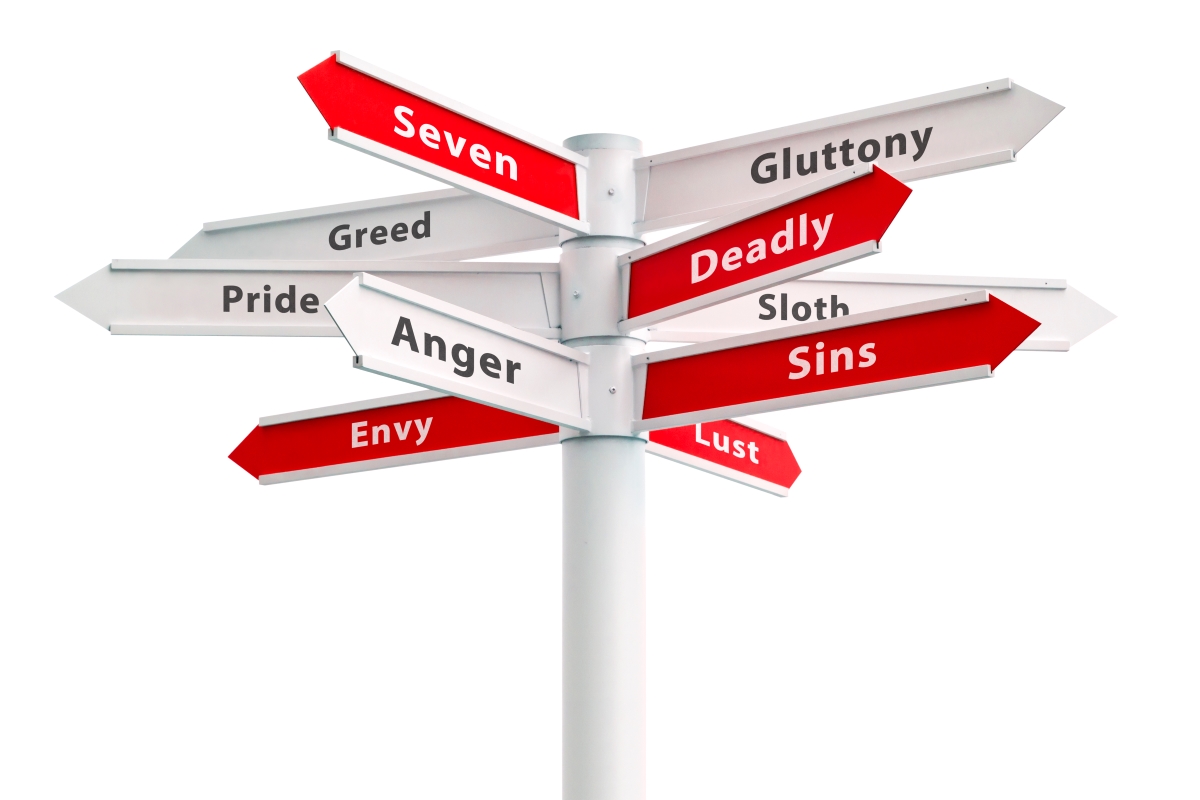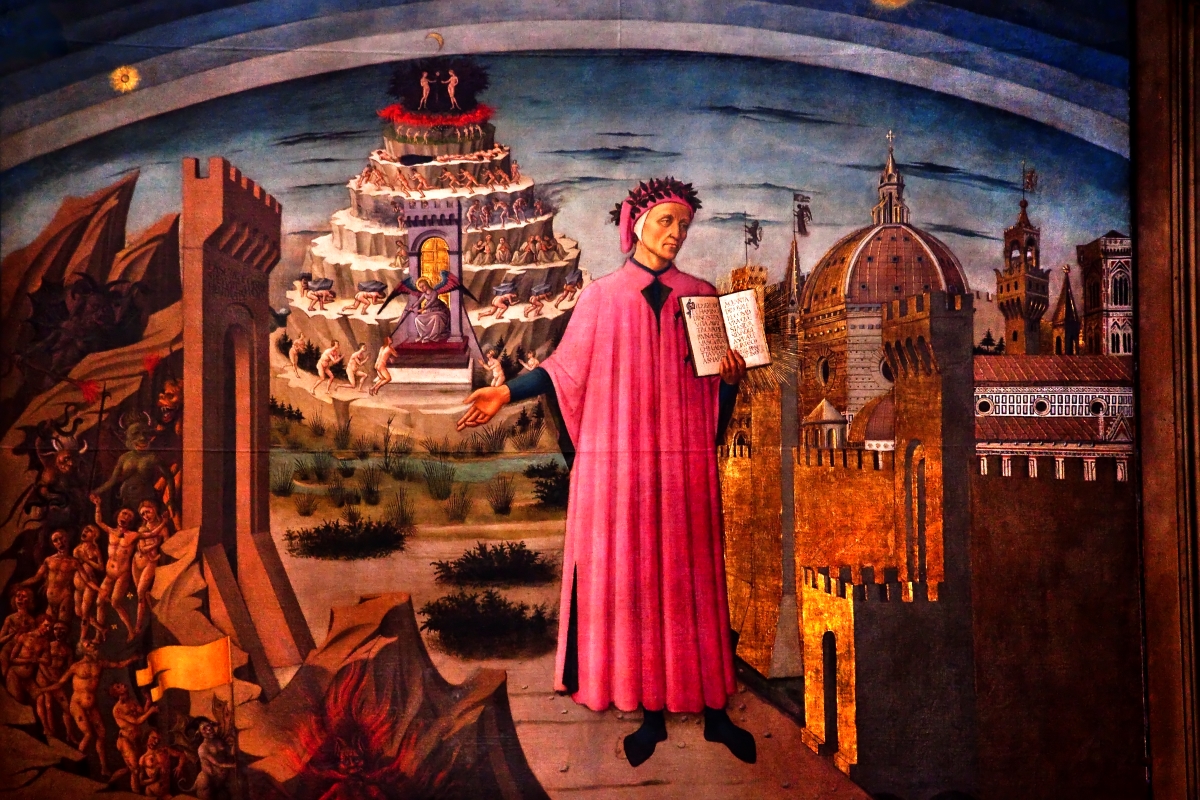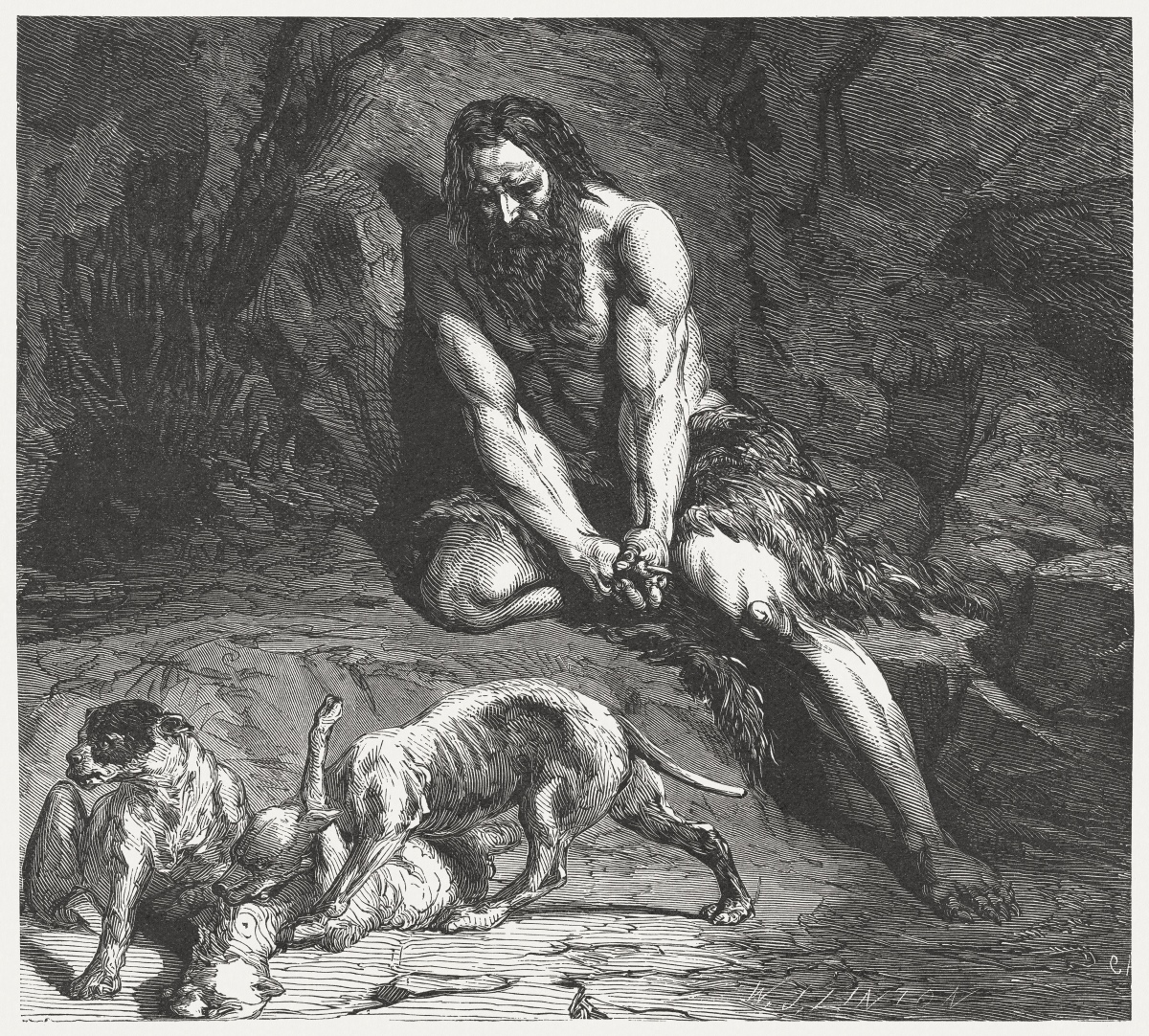The Biblical Roots of the Seven Deadly Sins
The concept of the Seven Deadly Sins has become deeply ingrained in culture and literature over the centuries, but where did this list of vices originate?
Understanding moral teachings is an essential element of biblical study and wider Christian living. The pitfalls in human nature that lead a soul away from the divine path provide great interest, as these vices are constantly explored for deeper interpretation. The Seven Deadly Sins has become deeply ingrained in culture and literature over the centuries, as well as modern film, fiction, and new media.

Despite not being expressly described in the Holy Bible (unlike the 10 Commandments, for instance), there are a multitude of examples of The Seven Deadly Sins found throughout Scripture. The Biblical Roots of the Seven Deadly Sins examines their origin in Christianity, while also looking at biblical stories exemplifying each sin, and reflecting on the lessons they can provide.
The Origins of the Seven Deadly Sins

The seven deadly sins developed in early Christian monasticism after a Christian monk, Evagrius Ponticus, listed eight evil thoughts that were harmful to a person’s spiritual progress (4th century AD).
Sorting sins into seven categories is commonly attributed to Pope Gregory (late 6th century AD), who highlighted pride, envy, anger, sloth, greed, gluttony, and lust as “capital vices” that could lead to many other sins. His list drew on teachings throughout Scripture about human depravity and the destruction caused by moral dissolution. Pope Gregory’s list became influential as a framework for moral self-examination and confession.
Jesuit monk St. Robert Bellarmine later consolidated these sins into their common forms, however, the seven deadly sins gained wider prominence through Dante Alighieri’s 14th-century poem, “The Divine Comedy.” In his epic, Alighieri vividly describes the journey of a soul towards God, detailing the consequences of succumbing to sin.
Biblical Examples of the Seven Deadly Sins

1. Pride: The Story of Nebuchadnezzar (Daniel 4:28-30)
“All this came upon King Nebuchadnezzar. At the end of the twelve months he was walking about the royal palace of Babylon. The king spoke, saying, ‘Is not this great Babylon, that I have built for a royal dwelling by my mighty power and for the honor of my majesty?’” (Daniel 4:28-30).
King Nebuchadnezzar failed to acknowledge God’s sovereignty and believed his power as ruler came solely from himself. In his pride, Nebuchadnezzar claimed direct credit for building the kingdom of Babylon and enhancing his own majesty. God punished Nebuchadnezzar with madness and drove him from his kingdom until he recognized God’s ultimate authority.
The story of King Nebuchadnezzar demonstrates how unchecked pride leads to downfall and warns against arrogantly taking credit rather than attributing achievements to God’s providence.
2. Envy: Joseph and His Brothers (Genesis 37:4)
“But when his brothers saw that their father loved [Joseph] more than all his brothers, they hated him and could not speak peaceably to him” (Genesis 37:4).
Joseph’s brothers envied the preferential treatment and special gifts that their father Jacob lavished on Joseph. Their jealousy grew into hatred and resentment that culminated in the brothers’ selling Joseph into slavery in Egypt. Though it eventually provided the means for Joseph’s rise to power, the brothers’ actions created significant suffering, hardship, and guilt for themselves (and Joseph).
Joseph’s story serves as a warning. Envy can rapidly turn to malicious actions, which pushes people to betray even those closest to them.
3. Anger: Jesus Cleanses the Temple (John 2:13-17)
“So He made a whip out of cords, and drove them all out of the temple, with the sheep and the oxen…Then His disciples remembered that it was written, ‘Zeal for Your house has eaten Me up ’” (John 2:15-17).
When Jesus arrived at the temple in Jerusalem, he was outraged to find merchants and money changers conducting business within the sacred temple grounds. In his righteous anger, Jesus drove out the livestock, overturned the merchants’ tables, and demanded that they stop turning his Father’s house into a marketplace.
Though anger itself is not inherently sinful, wrath can escalate to become zealous, impulsive actions that can cause disaster. Jesus’ emotional outburst illustrates the importance of exercising restraint, but also shows how even the Son of God was not immune to angry outbursts
4. Sloth: The Parable of the Talents (Matthew 25:14-30)
“Then he who had received the one talent came…and said, ‘Lord, I knew you to be a hard man, reaping where you have not sown, and gathering where you have not scattered seed. And I was afraid, and went and hid your talent in the ground” (Matthew 25:24-25).
In the Parable of the Talents, a master entrusts his servants with money, giving one servant only a single talent. This servant does nothing productive with his talent, but rather buries it in fear and laziness. When the master returns, the servant makes excuses for his inaction and apathy.
Jesus uses this parable to illustrate how wasting our God-given gifts and opportunities due to laziness and inactivity is morally wrong and spiritually dangerous.
5. Greed: The Rich Fool (Luke 12:16-21)
“Then [Jesus] spoke a parable…, saying, ‘The ground of a certain rich man yielded plentifully. And he thought…, I will pull down my barns and build greater, and there I will store all my crops and my goods. And I will say to my soul, “Soul, you have many goods laid up for many years; take your ease; eat, drink, and be merry.”’ But God said to him, ‘Fool! This night your soul will be required of you’” (Luke 12:16-21).
The Rich Fool tells the story of a wealthy landowner who had a very bountiful harvest. Rather than helping others with his surplus, he selfishly decided to tear down his barns and build bigger ones to store everything for himself. The man hoards his wealth instead of sharing, which prompts God to call him a fool, as his avarice provides no spiritual development or lasting fulfillment.
The Rich Fool warns against prioritizing earthly riches over spiritual wealth and living selfishly rather than generously.
6. Gluttony: The Parable of the Great Banquet (Luke 14:15-24)
“Then He said to him, ‘A certain man gave a great supper and invited many, and sent his servant…to say…, “Come, for all things are now ready.” But they all with one accord began to make excuses…So that servant came and reported these things to his master…, ‘Go out into the highways and hedges and compel them to come in, that my house may be filled’”(Luke 14:15-24).
A man prepares a great feast and invites many guests to attend. However, when the time came for the banquet, every guest made one excuse after another to avoid attending, revealing their excessive desire to overindulge in pleasures and refuse fulfilling their social obligation. Their gluttonous attachment to comfort and leisure caused them to snub their host’s generous invitation.
By choosing fulfilling fleshly lusts over their commitment to community, the parable of the banquet shows that gluttony can become an idol that displaces more important relationships and duties.
7. Lust: David and Bathsheba (2 Samuel 11)
“Then it happened one evening that David arose from his bed and walked on the roof of the king’s house. And from the roof he saw a woman bathing, and the woman was very beautiful…, and he sent messengers, and took her; and she came to him, and he lay with her” (2 Samuel 11:2).
When David stayed home from battle and noticed Bathsheba bathing on the roof below, he succumbed to intense sexual desire for another man’s wife instead of restraining his lustful impulses. David allowed lust to cloud his judgment and send for Bathsheba, commencing an adulterous affair that was purely driven by physical appetite. David’s carnal longing led him to commit the sins of adultery and murder in order to satisfy his lustful urges.
The story of David and Bathsheba demonstrates how lust can corrupt one’s character if not curbed and directed virtuously.
Conclusion
The Seven Deadly Sins help warn us against straying from the path of righteousness. Each sin corresponds to a human failing that moves us away from love and charity towards our fellow beings, and ultimately, from God.
As Proverbs 28:13 tells us, “He who covers his sins will not prosper, But whoever confesses and forsakes them will have mercy.” By understanding these vices and their reflections in the Bible, we can seek a path of virtue, and choose to more heavenly virtues in day-to-day life.
SKM: below-content placeholderWhizzco for FHB

